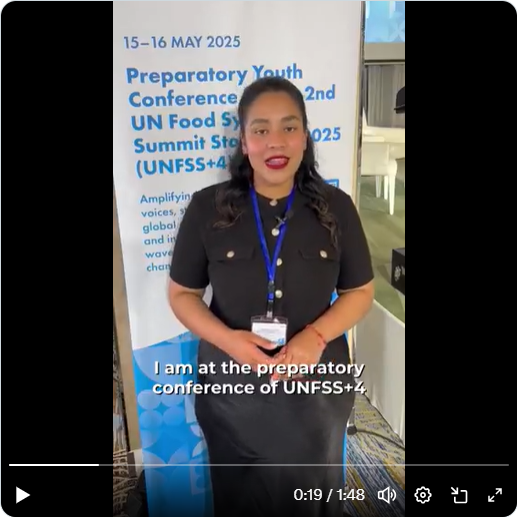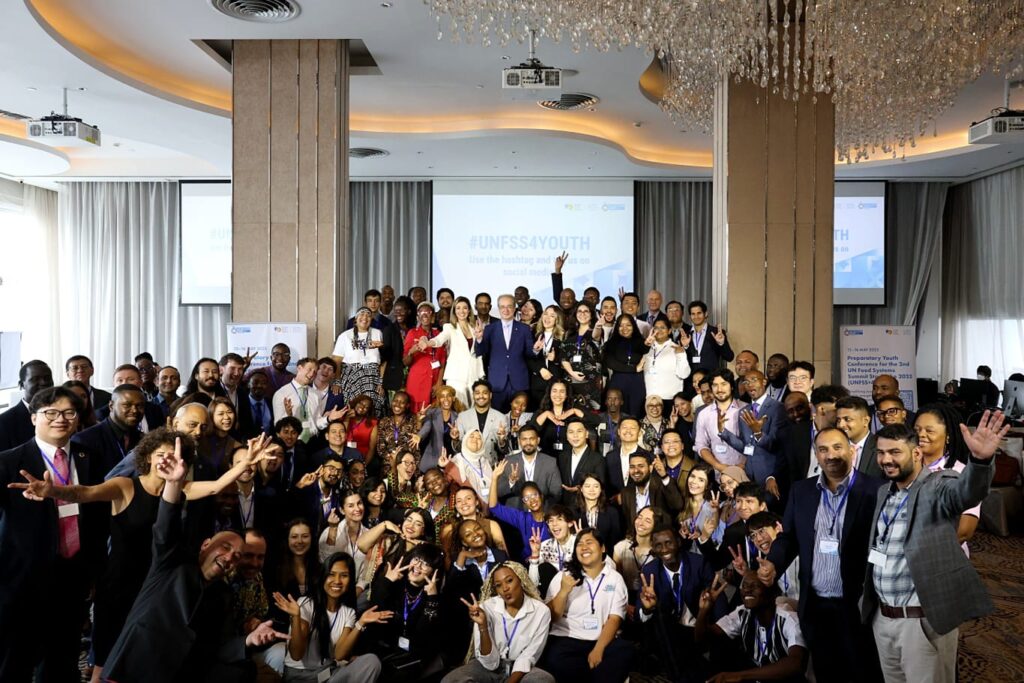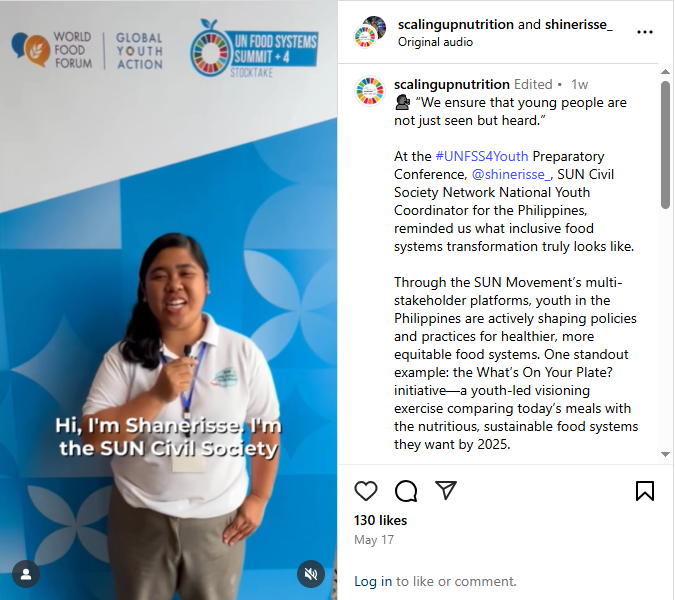What happens when you bring together young changemakers from across the globe — all working to fix our broken food systems and end malnutrition in their communities?
You get energy. You get vision. And with the right ongoing collaboration, you can get real system-change.
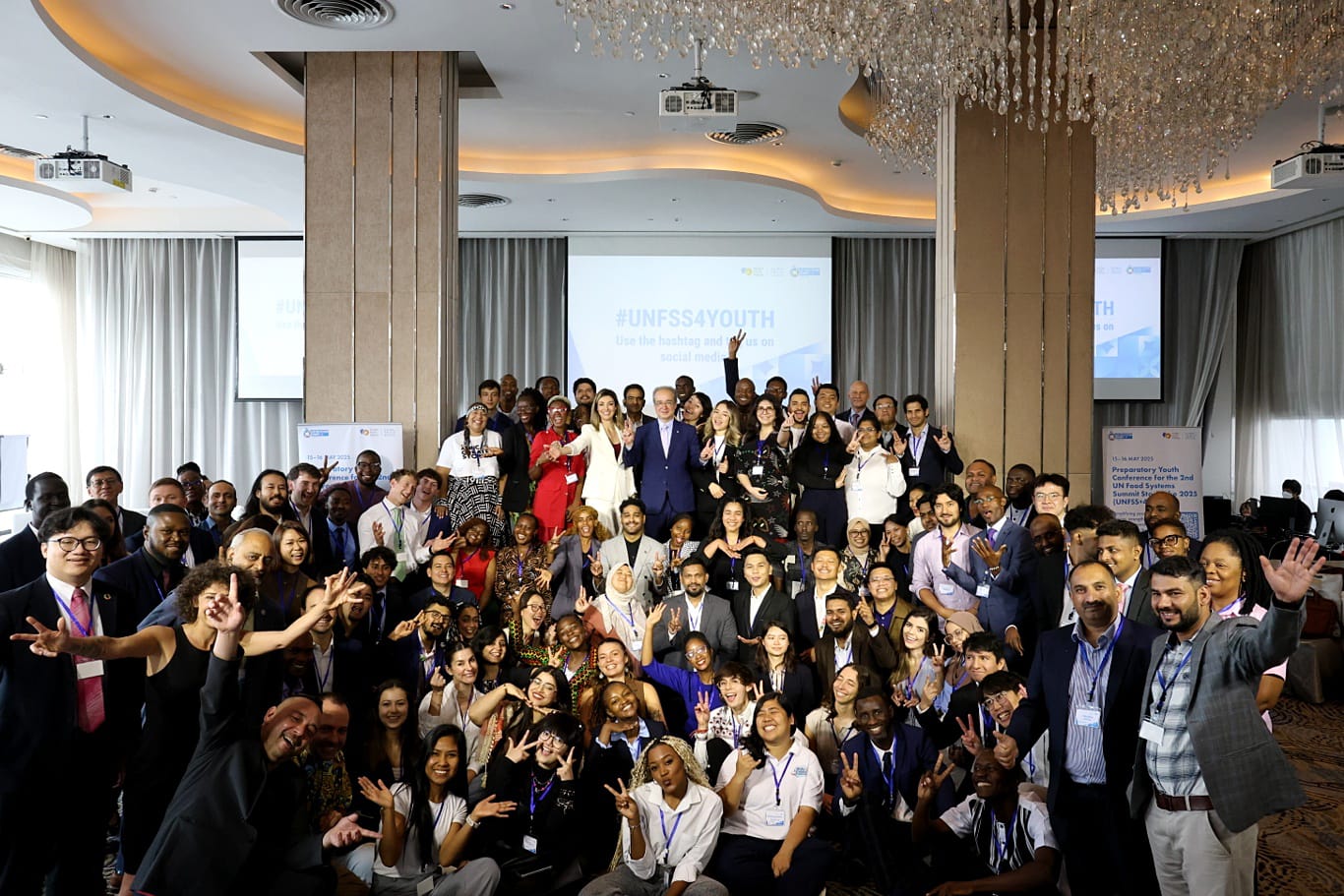
That’s exactly what we experienced in May 2025 at the UNFSS+4 Preparatory Youth Conference in Bangkok. As part of the SUN Movement, we’ve long understood that malnutrition cannot be solved in isolation — it’s deeply connected to how we produce, distribute and consume food.
That’s why the SUN CSN has been actively engaging in the UNFSS+4 process: to strengthen the linkages between civil society actors focused on nutrition and those advancing sustainable, inclusive food systems.
In Bangkok, the room was alive with the passion and dedication of young people determined to drive this change — and it’s clear the SUN Movement has a crucial role to play in supercharging their leadership.
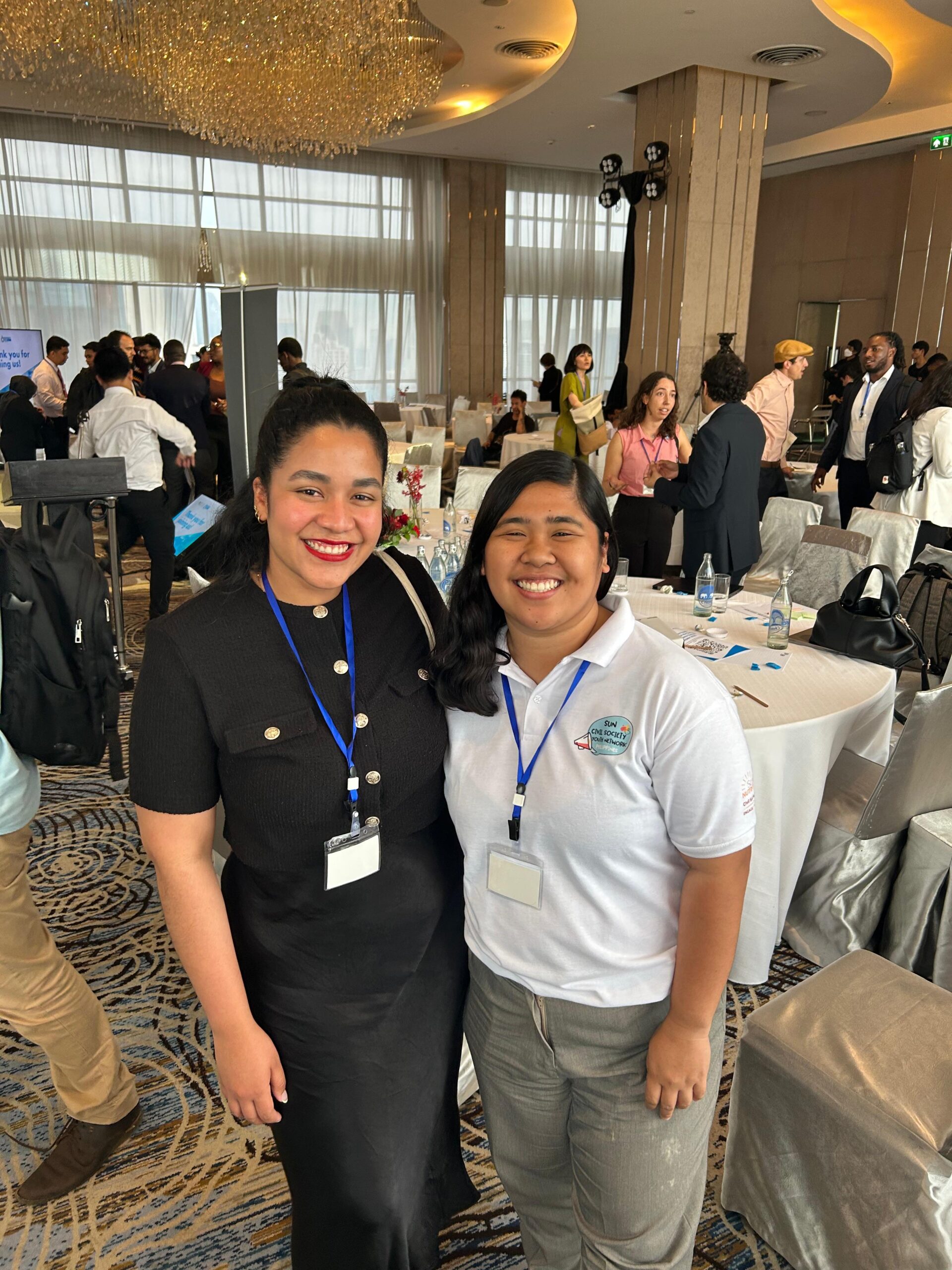
Showcasing the Youth Leaders for Nutrition Program – a model for community-led food system transformation from the local to national level
A highlight for us was being able to represent the SUN Movement and the SUN Civil Society Network alongside SUN CSN Youth Coordinators Shanerisse Tamondong (the Philippines) and Andrea Quinonez (Ecuador).
On the stage, Shanerisse and Sean Counihan, Senior Advisor in the SUN CSN Secretariat, shared the learnings from the Youth Leaders for Nutrition program and invited everyone in the room to embrace this model that prioritises dialogues with the most marginalised communities as the basis of all policy recommendations.

The enthusiasm in the room for this model was palpable, with so many people approaching us across the two days asking to learn more and to join the program. We even ran out of business cards!
The power of the SUN Movement – multi-stakeholder collaboration supercharging youth leadership
Two questions we heard from the floor really illustrated the value of this program and the wider SUN Movement…
The First Question:
“We feel very supported and recognised at the international level through platforms like the FAO Young Leaders Program, but when we return home, we don’t enjoy the same level of recognition at the national level with our governments. How can we overcome this challenge?”.
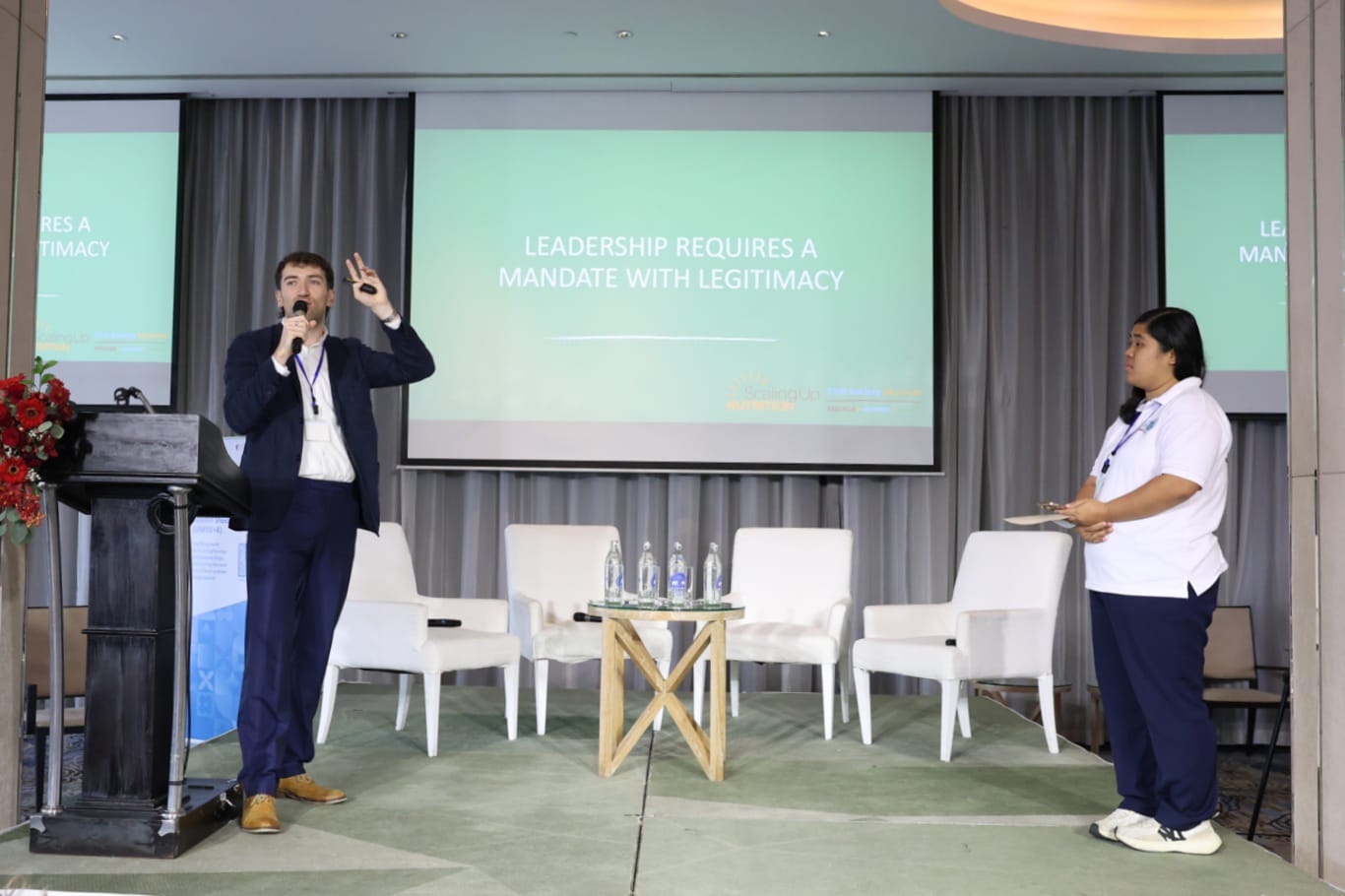
Our response? Legitimacy at the national level needs to be built from the ground-up, starting with grassroots communities. Holding dialogues with these communities, and working with them to develop localised policy recommendations, builds a representative mandate for young people so that they are not speaking from a narrow personal perspective but a broad one with the data and testimonies to support it.
With community perspectives underpinning young people’s advocacy, they can build credibility and legitimacy, and it compels decision-makers to sit up and listen to them.

The Second Question:
“But how do we get access to governments and decision-makers after carrying out these dialogues?”
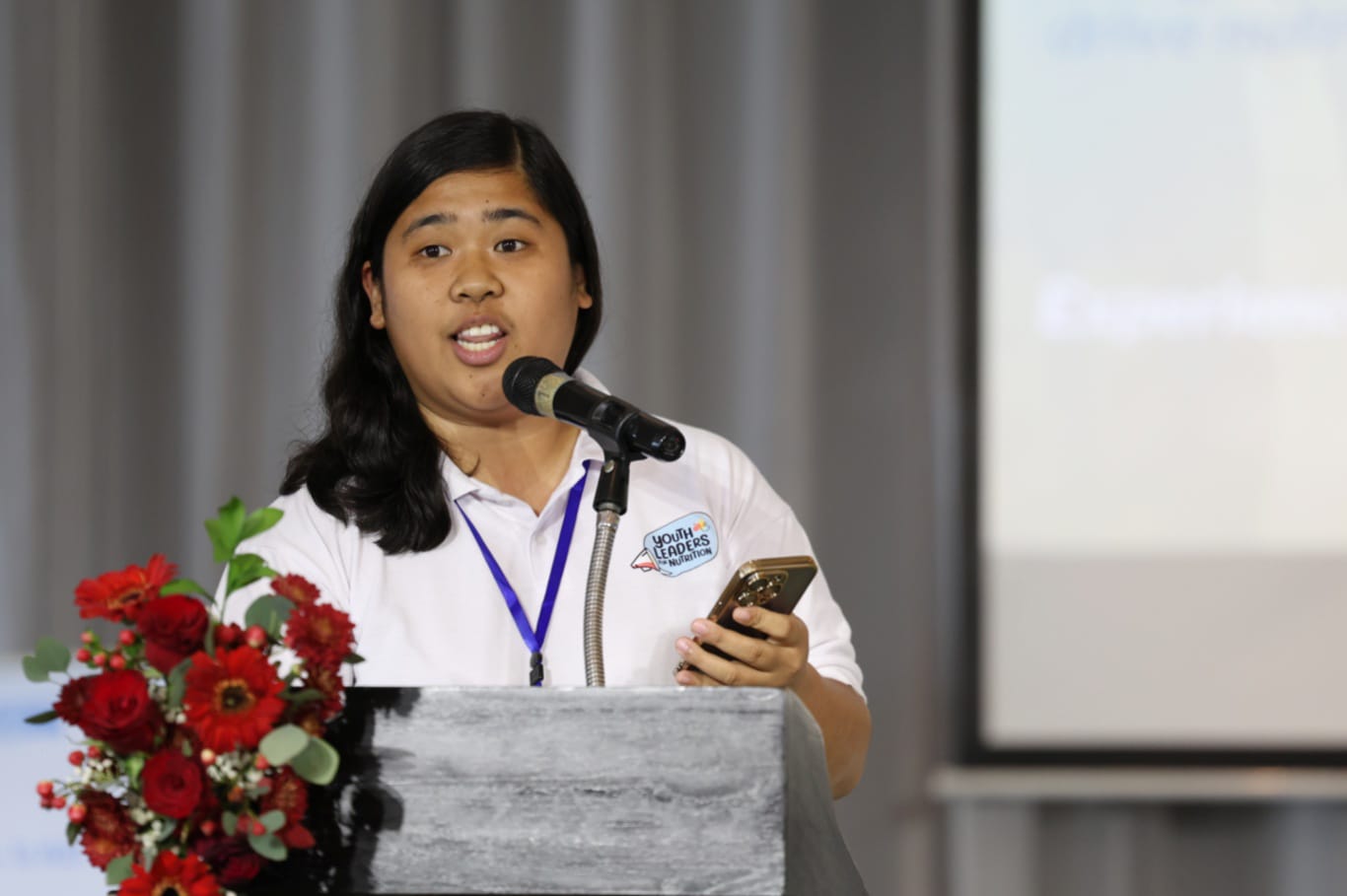
This is where the value of the SUN Movement really becomes clear. Because, with the multi-stakeholder approach, we have a rich ecosystem of partners from government, UN Agencies, academia, and private sector.
And of course, civil society is so well placed to work with young people to help open doors within the movement for them to share the data from their community research and scale up transformative policy recommendations through the SUN multi stakeholder platform at the national level.
Carrying lessons forward
Does this work perfectly within in the movement? Certainly not. There are many challenges that obstruct young people from participating fully and freely at the national and sub-national level, including shrinking civic space; prejudice and exclusion of young people; lack of access to funding; and safety and security issues; to name a few.
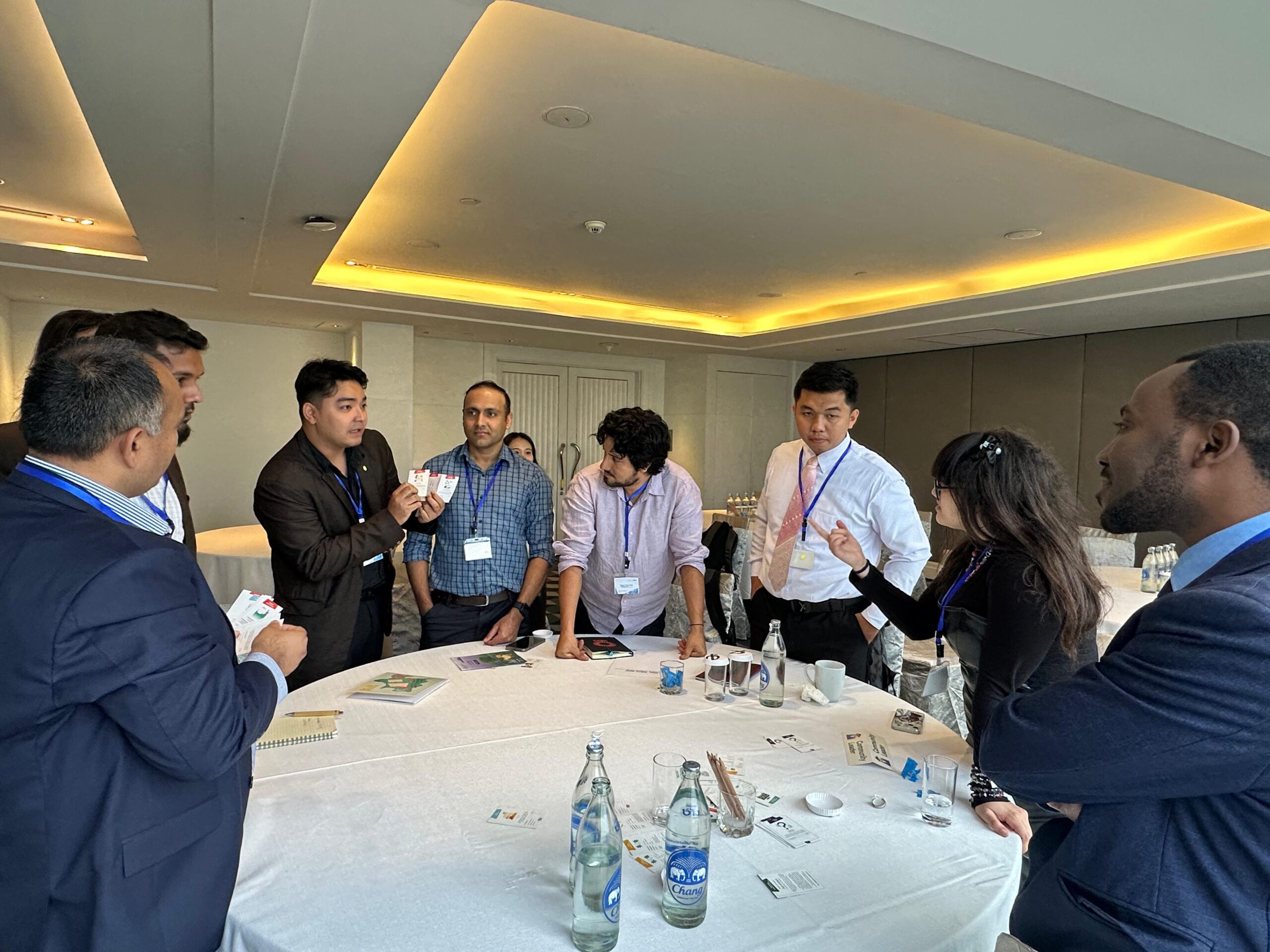
But over the past two years, we’ve proven that this model can and does work brilliantly when all SUN Stakeholders, especially the Civil Society Alliance and SUN Focal Point, understand the value of the program and are willing to collaborate to support meaningful youth leadership at the grassroots level.
On the stage at the preparatory youth conference, Shanerisse shared the wonderful success story of multi stakeholder collaboration in the Philippines, and we’ve been celebrating other examples of effective multi-stakeholder collaboration in Nigeria, Kenya, and Tanzania.
With all these learnings from the successes and challenges, our priority for the next 6 months will be to reshape the program to design a model that is truly scalable across the whole SUN Movement.
We need all SUN Civil Society Alliances and young people to co-lead this work in a meaningful partnership, and for the wider SUN Movement to create the enabling environment that allows young people at the grassroots to make their invaluable contributions towards accountability and ensure that decision-making is shaped by community-needs at every level.
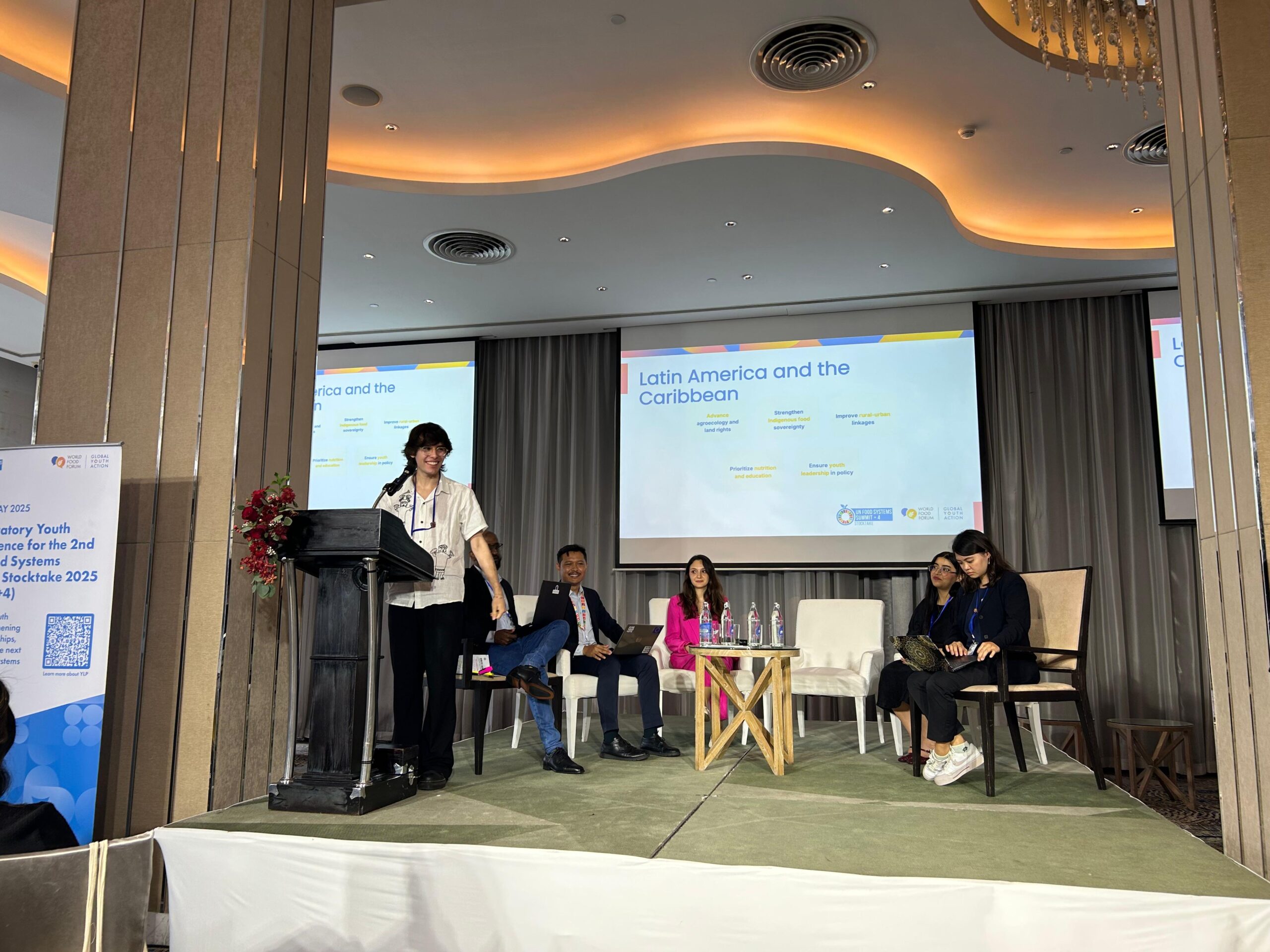
And as for the UN Food Systems Summit +4 Stocktake in July this year? We’re planning to carry forward the Youth Leaders for Nutrition mission to ensure policymaking is shaped by the most marginalised and underrepresented communities.
We know that young people are so well placed to lead these efforts, but they must be supported by all stakeholders to enable these dialogues and to channel the insights into policymaking spaces.
We will work with our partners and allies to advocate for this approach to be embraced by all stakeholders, and to use dialogues as a means of breaking down sectoral siloes and empowering communities to shape decision-making on climate change, food systems transformation, and nutrition.
Learn More
